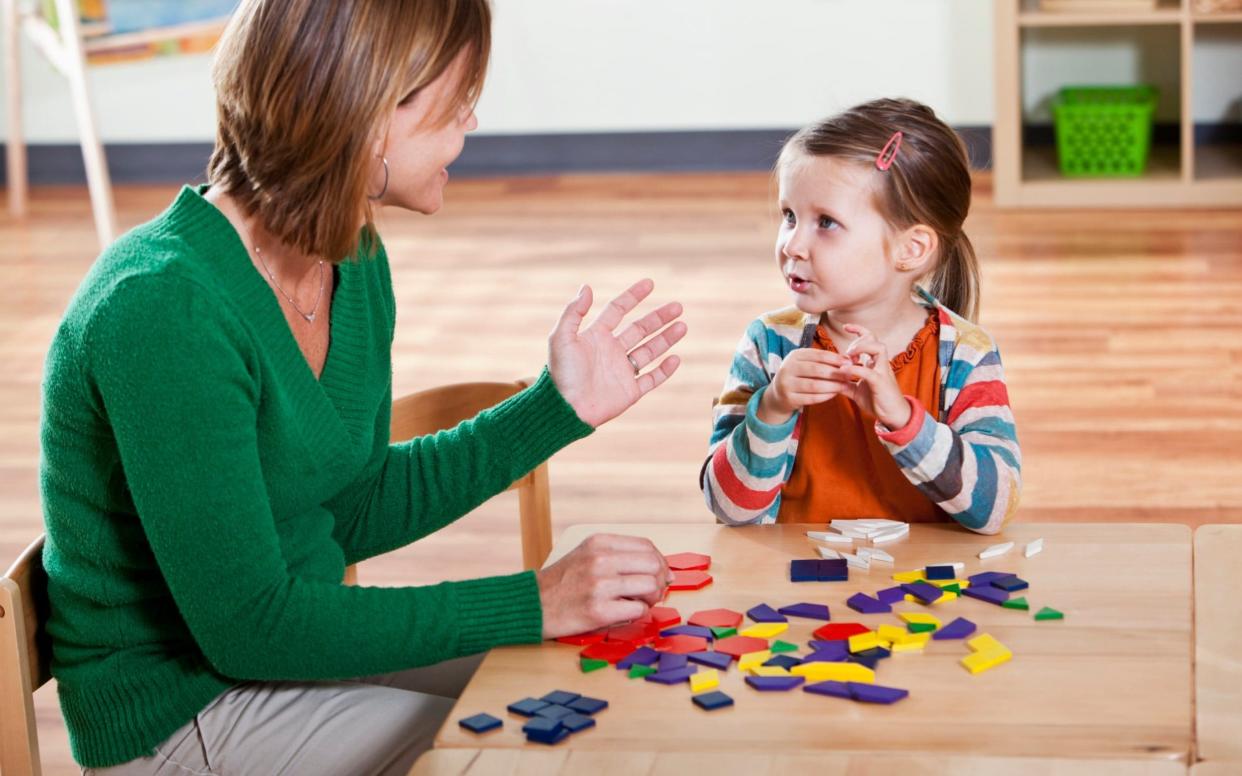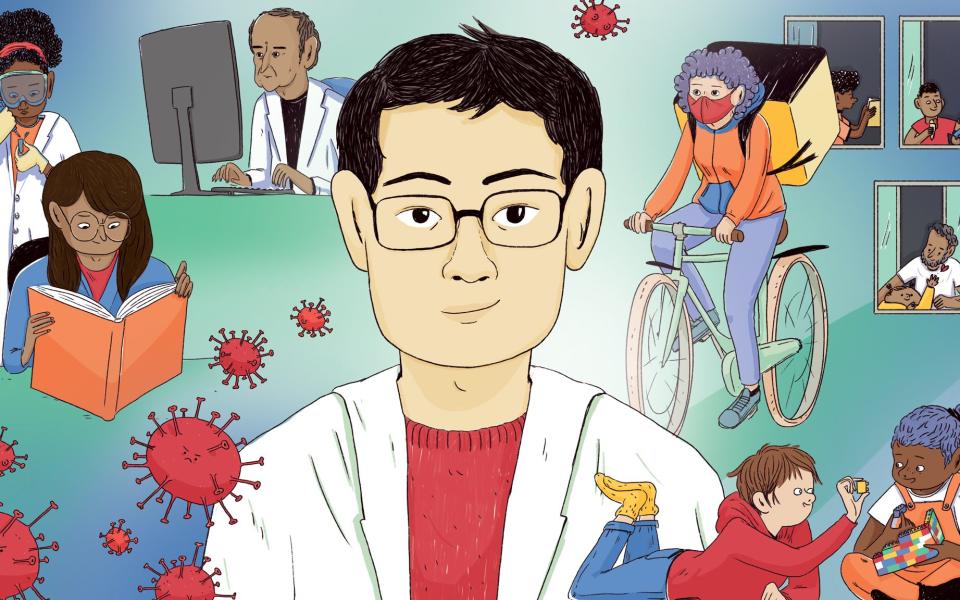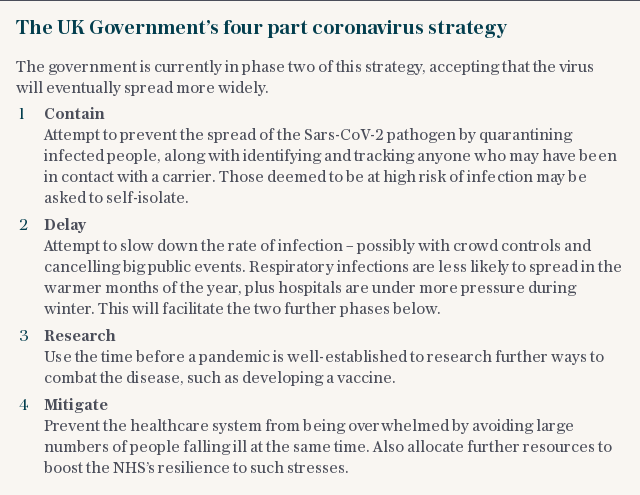Talking to your kids about coronavirus - how to explain Covid-19 to children

If you think you're worried about coronavirus, put yourself in a child's shoes. Given that some children have returned to a very different form of school life, it's particularly easy to see how they could be anxious about coronavirus.
Indeed, approximately 80 per cent of British children are worried about COVID-19, according to a YouGov/Cognita poll published in March.
That's why parents should not shy away from talking to children about coronavirus – as discussing the outbreak may safeguard their mental health in the future.
Attempts to avoid the issue or withhold information will harm their understanding in the long run, according to Dr Zoi Nikiforidou, a senior lecturer in Early Childhood Studies at Liverpool Hope University.
“Your child might only be five or six years old. But he or she will pick up pieces of information vicariously, whether it’s snippets of things they hear on the radio, in the car, or through news segments overheard from the TV or from discussions with peers at school," says Dr Nikiforidou, who specialises in research about children and risk, and who has spoken out against "cotton wool kids" in the past.

“They might not mention anything to you. But internally they may be trying to process this new information which could also be making them fearful.
“You might be tempted to try and skirt around the issue, telling them, ‘Oh, you don’t need to know about that’ in order to safeguard their feelings and worries.
“But you’re making judgments about what they may or may not need to know which could actually be detrimental to their cognitive development and appreciation of what is risky or not.”
As the coronavirus continues to spread, so too does hysteria. In isolation, the stats can seem pretty terrifying.
What impact does coronavirus have on children?
Many children get their information from snippets of adult conversations, or partially overheard news programmes. It would not be surprising, therefore, for them to believe that Covid-19 is the start of the apocalypse. At the start of the outbreak, this led to reports from parents of bullying towards children of East Asian ancestry and anxiety for their own health.
To better inform your child and prevent bullying and unnecessary panic, we have compiled the following guide for how to talk to your child about the coronavirus.
How to talk to kids about coronavirus
Make them feel safe
In much the same way as you might explain terrorism to your child, it is essential that you assure them they are safe. Explain the virus to them, using age-appropriate language, but underline that they are safe and that coronavirus is unlikely to affect them directly.
There are children's books out there that can help to start the conversation with your child. Axel Scheffler, illustrator of The Gruffalo, has illustrated a free digital book Coronavirus: A Book for Children. Likewise, Francesca Cavallo, co-author of bestseller Goodnight Stories for Rebel Girls, has created a free e-book called Doctor Li and the Crown-Wearing Virus. She is currently fundraising for a print edition.

It is good to remind your child that most people that get the virus recover and it has been widely reported that children are far less likely than adults to contract the virus. Even when children do get infected, mortality rates are low. This remains the same for people in good health up to middle age.
Best of all, there's something they can do to help: WASH YOUR HANDS. For 20 seconds or longer, with soap.
Social media myth-busting
Older children may have read about coronavirus on Twitter or Instagram. Remind them that this is an unverified source of information, so some of the things they are reading might be false. Listen to how they perceive the coronavirus, have a frank conversation, and direct them to reliable news sources.
Avoid racial stereotyping
Due to its origins in China, coronavirus has been dubbed “the China virus”. As such, there has been a rise in xenophobia around the world — including on the school playground. But it is now in countries worldwide.
At the start of the outbreak in the UK, the Manchester Chinese Centre received complaints of racist incidents targeting children at school. Jenny Wong, director of the Centre, shared the story of a little girl in north Manchester with the Manchester Evening News. "Her best friend told her 'my mum told me I'm not allowed to play with Chinese children anymore because you are the virus carrier.'"
One mother contacted The Daily Telegraph to share how this impacted her child’s school before lockdown. She wrote that at a school meeting the previous evening “several parents said Chinese kids in the school were being ostracised because of a supposed link to coronavirus.”
Paediatric nurse Lucy Li, 35, from Wanstead in east London, told the BBC that her 11-year-old daughter reported "that children are telling each other to 'stay away from all Chinese people because they are ill due to the virus'".
Another mother told Radio 4’s Today programme, “Some of them say, 'my mum told me I'm not going to play with you because you going to carry virus.’”
Boarding schools in the UK issued a public warning against xenophobia caused by coronavirus in March. China is the biggest single country source of international pupils at British independent schools.
As some children return to school, it’s important to have a conversation with your child, and be wary of your language when talking about the virus. If a parent makes a link between Chinese people and the virus, their child is likely to absorb that view and act in a xenophobic manner.
Read more: how to work from home with kids
Share scientific breakthroughs
Remind your child that scientists are working to find a cure. The Business Secretary recently said that the clinical trial at the University of Oxford is going well and, if it proves successful, doses could be available by the end of the summer.
It's also important to remember that other countries are working to find a cure, too. In San Diego, for instance, scientists are using new DNA technology to try and find a vaccine.

Good sources of news for children
If you’re looking for child-appropriate, non-alarmist sources of information, try First News, the newspaper for kids. Similarly, we recommend current affairs magazine, The Week Junior.
The Day is an online news service for older children, with an optional daily newsletter to keep older kids informed.
For a child-friendly news programme, we recommend FYI — a current affairs show aimed at and hosted by children on Sky.


